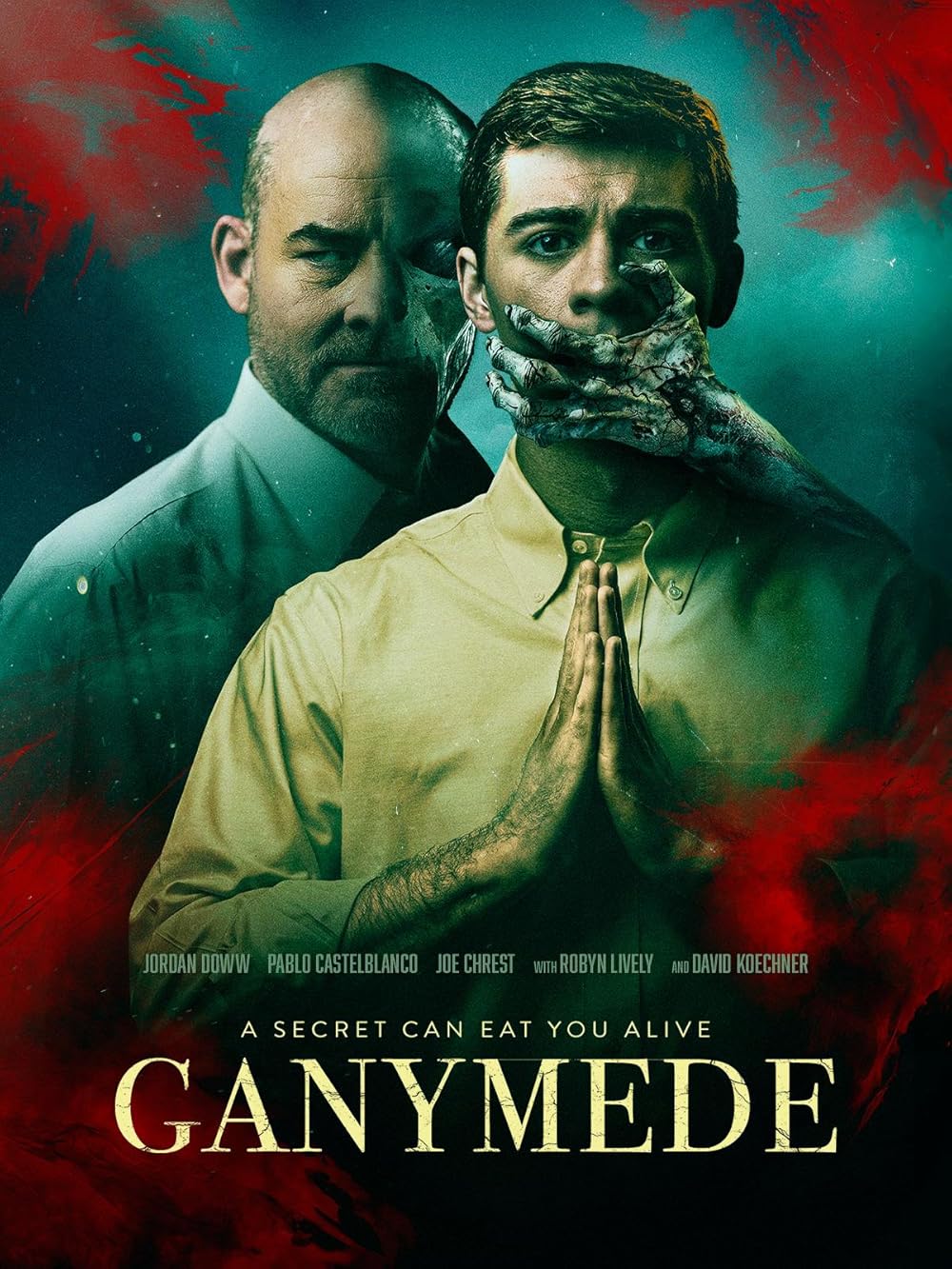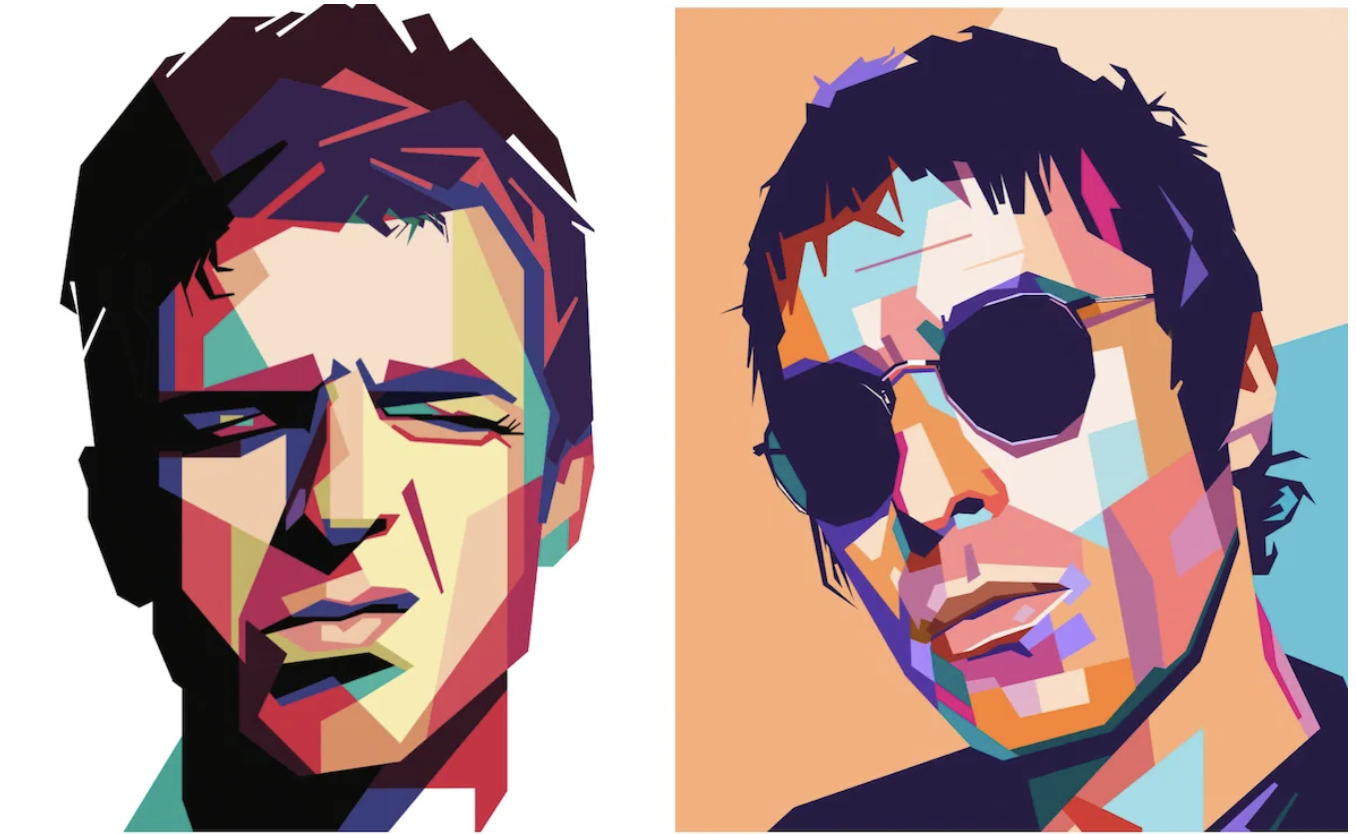We're seeking new members for our 2025 Board of Directors, as well as our founding Associate Board for young professionals 35 and under. Details and application at each of the links above.
The CHIRP Blog
KSanders writesThe Southern-Fried Queer Horror of “Ganymede”
 by Kyle Sanders
by Kyle Sanders
A few years ago I had the opportunity to meet one of my idols, writer Fran Lebowitz. After signing my copy of The Fran Lebowitz Reader, I complimented the pair of cowboy boots she was wearing, and pointed to my own (I happened to be dressed in similar attire as she was: sport coat, pressed button-down shirt, and cuffed denim jeans--not that she seemed to notice), which I had purchased in Nashville, Tennessee a decade prior.
"You should buy a pair the next time you do a speaking engagement in Nashville," I insisted. She seemed unconvinced, stating that she'd never been to Nashville because she's rarely invited to speak in the conservative parts of the country.
"Oh," I responded. "You should give Nashville a chance though--they've become slightly more progressive these days."
"Yeah," Fran quipped back. "But it's still the South."
Less than a year after that fateful encounter, the Volunteer State signed into law the Tennessee Adult Entertainment Act, which prevents "adult cabaret performance" in public or in front of children.
The details are pretty vague, until you come across the section that defines such performances as "male or female impersonators who provide entertainment appealing to prurient interest." In other words, this law was primarily meant to ban drag performances.
Fran was right, no matter how liberal a red state city can appear, the South is still gonna "South."
Why exactly is that? Why is it that progress is slowed (or more accurately, forced backward) thanks to the conservative-minded hive of Bible-beating, family-valuing climate deniers? More importantly, why a ban on drag? How does a law so trivial in the grand scheme of things take precedence over actual legislation that benefits communities instead of divides them?
What is it about drag--and to a greater extent, the LGBTQ community--that conservatives are so afraid of? These nagging questions kept bubbling up to the surface as I watched the latest queer horror release, Ganymede.
CHIRP Radio writesCHIRP Radio Weekly Voyages (Sep 16 - Sep 22)
Upcoming Events:
- Thursday Sep 26: CHIRP Welcomes Ibibio Sound Machine to Outset
- Friday Sep 27: CHIRP Welcomes The Juliana Hatfield Three to Sleeping Village
- Saturday Sep 28: CHIRP Welcomes Material Issue to Lincoln Hall
- Saturday Sep 28: CHIRP Welcomes Previous Industires to Schubas
- Sunday Sep 29: CHIRP is proud to partner with Chicago Humanities for Pilsen Day
- Sunday Sep 29: CHIRP Night at the Whistler with Heet Deth and Tension Pets
- Friday Oct 4: CHIRP Welcomes Jalen Ngonda to Lincoln Hall
- Thursday Oct 10: CHIRP Welcomes Lady Lamb to the Old Town School of Folk Music
- Friday Oct 11: CHIRP Welcomes Boris to Ramova Theatre
- Friday Oct 11: CHIRP Welcomes Josh Rouse to the Old Town School of Folk Music
- Saturday Oct 12: CHIRP Welcomes the dB's and the Vulgar Boatmen to the Old Town School of Folk Music
- Tuesday Oct 15: CHIRP Welcomes Sondre Lerche to the Old Town School of Folk Music
DJ M-Dash writesOasis: Rock N’ Roll’s Most Polarizing Great Band?
by Andy Frye
 If you follow music at all, you have heard the news: Oasis are back together. With concert dates next summer scheduled in London, Cardiff, Dublin, and other locations, tickets across the pond are selling fast. Is there new material? Supposedly, there is an album in the works. In related news, Liam Gallagher says his brother Noel is no longer a "potato."
If you follow music at all, you have heard the news: Oasis are back together. With concert dates next summer scheduled in London, Cardiff, Dublin, and other locations, tickets across the pond are selling fast. Is there new material? Supposedly, there is an album in the works. In related news, Liam Gallagher says his brother Noel is no longer a "potato."
Why reform Oasis now? Some might say… It's all about the money. Either way, many of us who dug in hard to their first two albums a quarter-century ago are celebrating. To others, the band is still—to say the least—a little polarizing.
Looking back, what appears to irk people most about Oasis, at least in the U.S., is both about the music—and not about the music. Some of the dislike of the band is more about the two brothers' personalities. Or—at least back then in the '90s—the size of their footprint on music.
But with the more prominent bands from the 1990s it seems to come with the territory. Ask anyone on the street about one of the most popular acts of the decade—not Nirvana, but the Dave Matthews Band and you'll surely get different reactions. Some consider DMB not much different from smooth jazz (something about which we all have a pointed opinion.) There are strong opinions about Green Day, Alanis Morrissette, and the Red Hot Chili Peppers. Like them or not, each artist was an essential part of the late 20th-century musical ecosystem.
CHIRP Radio writesCHIRP Radio Weekly Voyages (Sep 9 - Sep 15)
Upcoming Events:
- Wednesday Sep 11: Both Sides Now: A CHIRP Vinyl Listening Bar at Schubas (feat. DJ D-Rock)
- Wednesday Sep 11 - Sunday Sep 15: CHIRP Radio is a proud media sponsor of the 31st Chicago Underground Film Festival
- Saturday Sep 14 - Sunday Sep 15: CHIRP Radio is at the Ravenswood ArtWalk: Tour of Arts & Industry
- Tuesay Sep 17: CHIRP Music Trivia: OG Edition at Beermiscuous
- Friday Sep 27: CHIRP Welcomes The Juliana Hatfield Three to Sleeping Village
- Saturday Sep 28: CHIRP Welcomes Material Issue to Lincoln Hall
- Saturday Sep 28: CHIRP Welcomes Previous Industires to Schubas
- Sunday Sep 29: CHIRP is proud to partner with Chicago Humanities for Pilsen Day
- Sunday Sep 29: CHIRP Night at the Whistler with Heet Deth and Tension Pets
- Friday Oct 4: CHIRP Welcomes Jalen Ngonda to Lincoln Hall
CHIRP Radio writesCHIRP Radio Weekly Voyages (Sep 2 - Sep 8)
Upcoming Events:
- Friday Sep 6: CHIRP Welcomes Tobacco City, Half Gringa and Red PK to Metro
- Saturday Sep 7 - Sunday Sep 8: CHIRP Radio is a media sponsor for Thirsty Ears Festival
- Wednesday Sep 11: Both Sides Now: A CHIRP Vinyl Listening Bar at Schubas (feat. DJ D-Rock)
- Wednesday Sep 11 - Sunday Sep 15: CHIRP Radio is a proud media sponsor of the 31st Chicago Underground Film Festival
- Saturday Sep 14 - Sunday Sep 15: CHIRP Radio is at the Ravenswood ArtWalk: Tour of Arts & Industry
- Friday Sep 27: CHIRP Welcomes The Juliana Hatfield Three to Slepping Village
- Friday Sep 27: CHIRP Welcomes Material Issue to Lincoln Hall
- Friday Sep 27: CHIRP Welcomes Previous Industires to Schubas
- Sunday Sep 29: CHIRP is proud to partner with Chicago Humanities for Pilsen Day
- Sunday Sep 29: CHIRP Night at the Whistler with Heet Deth and Tension Pets